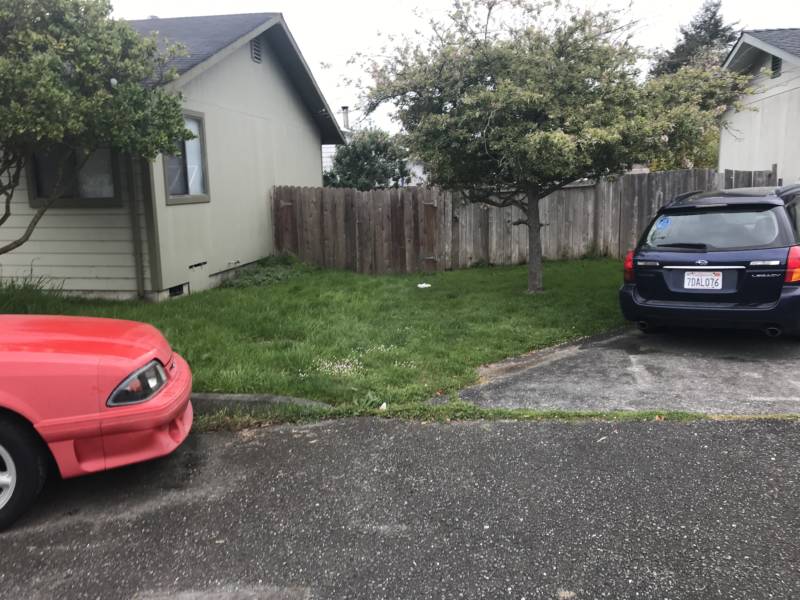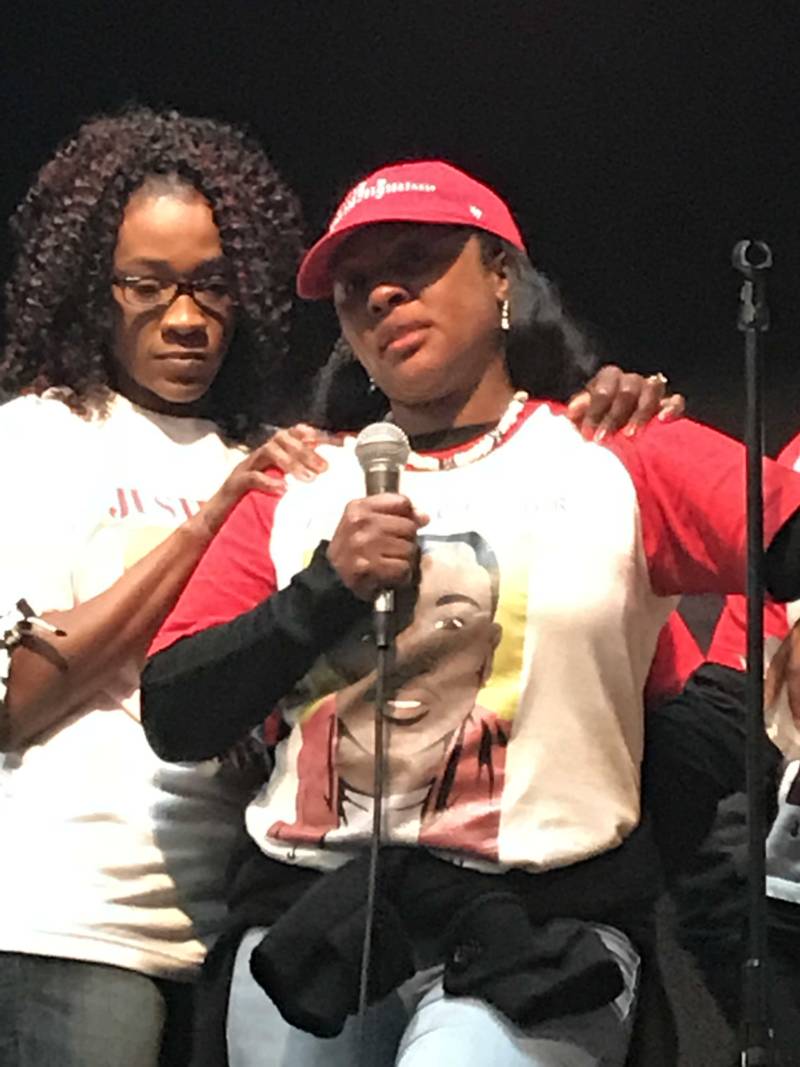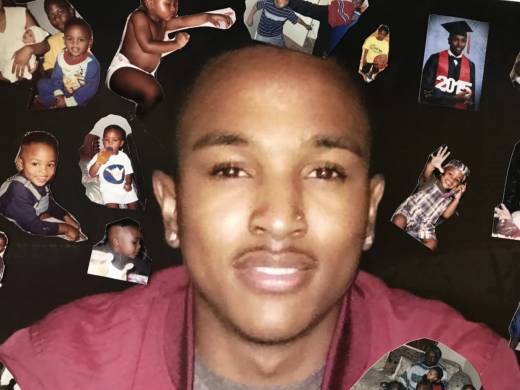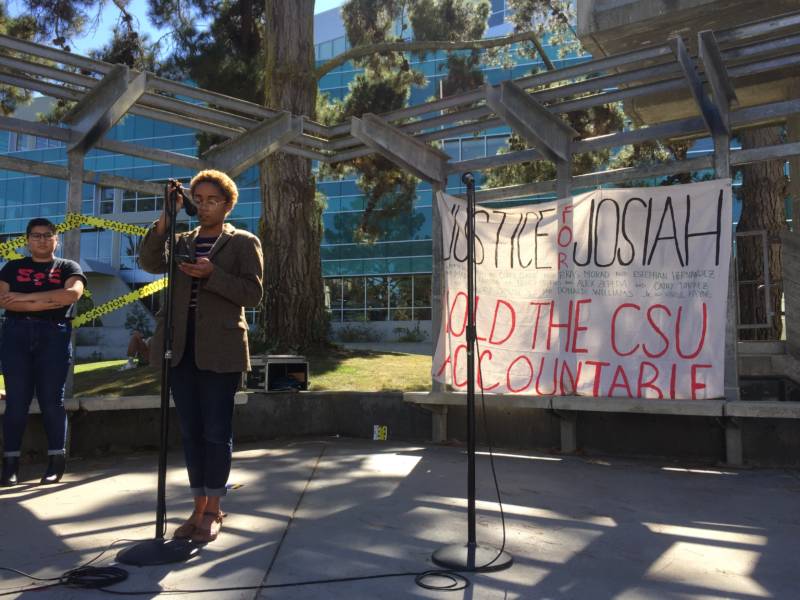Students at California State University campuses from Humboldt to San Diego are holding rallies and teach-ins to spread the word about the 2017 stabbing death of Humboldt State student David Josiah Lawson, and to demand that black students and other students of color on CSU campuses feel safe and protected.
It all started over a cell phone, some witnesses said.
In the early hours of April 15, 2017, a house party in the small Northern California town of Arcata erupted in violence, leaving the 19-year-old Lawson dead.
Lawson, known to his friends by his middle name, or as 'DJ' to his mother, was a black student at Humboldt State University, a handsome athlete studying criminology. He was recruited by HSU at a high school fair in his Riverside County hometown, all the way on the other end of California.
What really happened that night is still unclear. But some details remain consistent. As the party was breaking up, some white residents accused Lawson and his friends of stealing a cell phone. The resulting brawl left Lawson pepper-sprayed and stabbed multiple times. Lawson died of those stab wounds. Some witnesses said Kyle Zoellner, a young white man from the area, was seen dropping something shiny. Zoellner was arrested, and then later released for lack of evidence. In June, Zoellner sued the city of Arcata, alleging police and city officials violated his civil rights.
But Lawson’s family and friends say local police barely investigated the crime, failed to interview key witnesses, and ignored important evidence. The chief of the Arcata Police Department, Tom Chapman, resigned this past April, under a cloud of criticism over the handling of the case, including from an FBI consultant.

Arcata, where Humboldt State University is located, is a small and sleepy town in one of the northernmost pockets of California. This is marijuana country, known for an open, liberal culture of hippies and high times. It is also a very white part of California. Arcata is around 80 percent white, and many in the community say local residents are less than welcoming to students of color, like Lawson.
It has been a year and a half since Lawson was killed, and his death remains unsolved. But this week, new light is being cast on Lawson’s case, across California State University campuses.
At San Francisco State University’s Malcolm X Plaza on Monday, a group of students stood on a stage, behind them, yellow police caution tape and a banner that read “Justice for Josiah.” Underneath it, was a list of names of students who had been killed while attending CSUs.
The list of names included Cory Clark, another black Humboldt State student who was killed in the nearby town of Eureka in 2001. In a bitter twist, Lawson was the head of Brothers United, a group of students at HSU that formed after Clark’s unsolved murder to support young black men on campus.
The fact that people are still — some for the first time — talking about Lawson’s death, is due in large part to his mother, Charmaine Lawson. She’s been tirelessly campaigning to bring attention to his killing, and to ask for justice.

But Charmaine Lawson, who has organized multiple vigils and rallies, and has taken her son’s case to the California State University Board, spent the year and a half marker of her son’s death working.
“I’m working to keep my mind occupied, and not dwell,” she said. “I work in the healthcare field, and I felt like my job was to help others today.”
“My son was a giver, and wanted to give back to those less fortunate,” she said. “And I wanted to do that today.”
Lawson said she is grateful that so many students from CSUs across the state have picked up the mantle.
“My heart is filled with joy, and I’m so proud that the students and faculty and staff, just, you know, want to do so much to bring justice for our family, and for my son," she said. "So many people who are rallying did not know him. Everyone that is rallying, and showing their support did not know him."
San Francisco State University student Akaelah Flotho did not know David Josiah Lawson. At the time he was killed, she was a student at a community college close to Humboldt State, The College of the Redwoods. Flotho said even before Lawson’s death, the animosity towards students of color in the area was palpable.
“I was napping on the bus after like, a 12 hour day, and I was woken up, to my chair being jolted,” she said. She heard someone shout the N-word at her, and then they threw a metal object.
She said she didn’t go to school for a week after that happened.
“I was way too anxious [to take public transportation]," she said. “I’m still very scared."
Flotho said that anxiety stays with her.
“I remember breaking down and saying [to myself], some — a white local — could just off me, and I could never make it out of Humboldt County.”
That was before Lawson was killed.
“A month later, I heard about Josiah, and I just had that, yeah, this is what students of color are talking about,” said Flotho.


